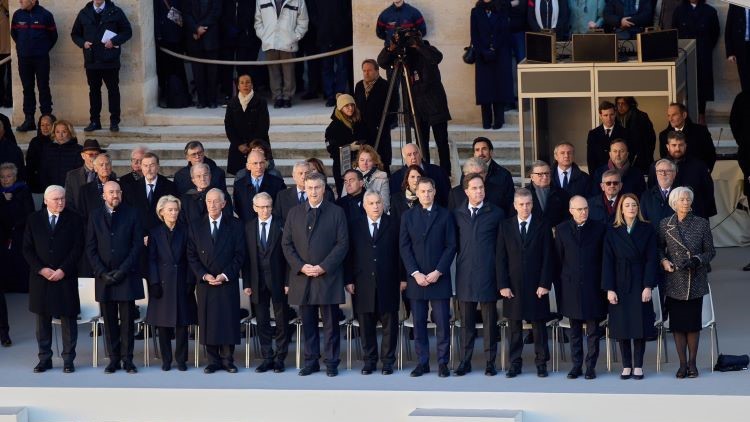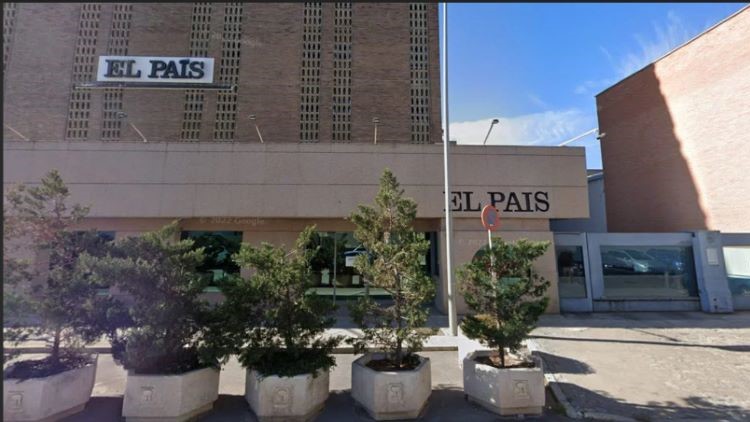Eduardo González
The Minister of Foreign Affairs, José Manuel Albares, recalled yesterday the need to maintain a “united, strong and fair EU” on the occasion of his participation, on behalf of the Spanish Government, in the national tribute organized by the French Presidency to the former president of the European Commission Jacques Delors.
“I am attending in Paris the tribute to Jacques Delors, a great Europeanist whose legacy inspires us to continue working for European values: democracy, freedom, equality and tolerance,” Albares declared through his official account on the social network X. “In a key year for Europe with elections in June, we defend a united, strong and fair EU,” he added.
Yesterday France hosted a memorial for him who was president of the European Commission, who died at the end of December at the age of 98. The event was organized in the courtyard of the Invalides military complex by French President Emmanuel Macron, who in his speech highlighted Delor’s role in “reconciling Europe with its future.”
“Jacques Delors contributed to shaping the face of today’s Europe stroke by stroke,” added the French president, who listed some of Delors’ main achievements as president of the Commission, such as the Single Act that established the free circulation of goods, people and capital, the Economic and Monetary Union that would give rise to the euro, the cohesion programs for the less advanced regions or the Erasmus program.
Among those attending the tribute were the presidents of Germany, Frank-Walter Steinmeier, and of Portugal, Marcelo Rebelo de Sousa, and the prime ministers of the Netherlands, Mark Rutte; Hungary, Viktor Orban; Croatia, Andrej Plenkovic; Belgium, Alexander de Croo; Slovenia, Robert Golob; Bulgaria, Nikolai Denkov; and Luxembourg, Luc Frieden.
The president of the European Commission, Ursula Von der Leyen; the president of the European Council, Charles Michel; the president of the European Parliament, Roberta Metsola; and the president of the European Central Bank (ECB), Christine Lagarde, also attended Paris, in addition to the former presidents of the Commission Romano Prodi and José Manuel Durao Barroso, or the former presidents of the European Parliament Enrique Barón and Pat Cox.
“Jacques Delors forged his vision of a united Europe and his commitment to peace in the dark hours of World War II,” Ursula von der Leyen said in a statement. “With remarkable intelligence and unparalleled humanity, he has been the tireless defender of cooperation between European nations and, subsequently, of the development of European identity (…), an idea that became a reality thanks, among other things, to the establishment of the Single Market, the Erasmus program and the first stages of a single currency, thus shaping a prosperous and influential European bloc,” she noted.
According to Von der Leyen, Delors’ Presidency at the head of the European Commission “was marked by a deep commitment to freedom, social justice and solidarity, values that are now deeply rooted in our Union.” “Jacques Delors was a visionary who made Europe stronger. “His work had a profound impact on the lives of generations of Europeans,” she added.
Jacques Delors, born in Paris, July 20, 1925, member of the French Socialist Party and minister under François Mitterrand, assumed the position of president of the European Commission (EC) in January 1985 thanks to the support of the president of his country and the German Chancellor Helmut Kohl. He remained at the head of the so-called Delors Commission for three successive terms (from 1985 to 1988, from 1989 to 1992 and from 1993 to 1994). The third Delors Commission was also the first Commission of the European Union, since the Maastricht Treaty came into force in 1993.
Much of the community progress that has brought us to the European Union is due to Delors, such as the Schengen Treaty for the abolition of border controls and their transfer to the external borders of the EU, the Single European Act of 1987, which contributed to the creation of the European Union five years later, or the Erasmus program for the mobility of university students.
Delors was awarded the Prince of Asturias Award for International Cooperation in 1989. In 1995 he was the first recipient of the Carlos V European Award from the European Academy of Yuste Foundation. Delors was president of the Commission precisely when Spain entered the European Communities, on January 1, 1986, during the Government of Felipe González.







